After Israel’s latest battle with Hamas last month, a House Republican from Texas accused Twitter of “enabling the enemy” by allowing the Palestinian militant group to have a Twitter account.
“The FBI and Twitter must recognize sooner rather than later that social media is a tool for the terrorists,” Rep. Ted Poe told the Hill, a Washington newspaper.
Poe’s comments came after he and six other congressmen wrote to the FBI demanding that Twitter remove accounts of groups designated by the United States as terrorists.
Regardless of whether the organizations should be allowed to have Twitter handles, the congressmen touch on a problem getting too little attention given how quickly social media is spreading as the pre-eminent information-sharing method of our age.
Social media is no longer simply a fun way to share updates on the harmless idiosyncrasies of our lives. It can undermine national security, and there ought to be a more robust discussion between the Bay Area technology world and Washington on what to do about it.
Cyber-terrorism, especially the potential for electronic tampering with U.S. industrial or military installations, is a paramount national security threat that Washington is working to forestall. We’re all working to protect our accounts from hackers. But the cyber-threat getting far less public attention involves the social media networks we use every day and the potential they have to trigger an unexpected crisis.
This discussion should have begun in earnest with the killing of Osama bin Laden.
In May 2011, as U.S. Navy SEALs prepared to covertly descend on bin Laden’s suspected compound, an insomniac, a Pakistani IT specialist using the handle@reallyvirtual tweeted about hearing helicopters.
His tweets didn’t scuttle the mission. But they certainly could have. And there was surprisingly little public talk in the aftermath of what could have gone wrong.
In September, a 14-minute clip of a low-budget film made in California that insulted the Prophet Muhammad went viral on Google’s YouTube, producing a national security headache for the United States.
Protesters first breached the compound of the U.S. Embassy in Cairo. Demonstrations erupted outside at least 20 other U.S. Embassies across the entire Muslim world, from the Middle East all the way to Indonesia. In Tunisia, crowds clashed with police at the U.S. mission and an American school was ransacked. Police fired on protesters at the American Embassy in Sudan. A Marine rapid response team was dispatched to Yemen to protect U.S. diplomats.
The deadly assault on the U.S. Consulate in Benghazi, Libya, was later determined to be a terrorist attack not related to the film. Republican attacks on the Obama administration’s characterization of what happened in Libya overshadowed the chaos the film did in fact trigger elsewhere.
Internally, Google gets it. There are people in the company’s Mountain View headquarters who worry every day about controversial content.
But social media companies, which pride themselves on being beacons of free speech, don’t like being told what to do by Washington bureaucrats, lest they leave the mistaken impression to their millions of users here and abroad that they are government lackeys.
With the film-clip crisis unfolding, the White House, eager to see the video removed, asked Google to reconsider whether it violated YouTube’s terms of service. Google said it didn’t. Instead, because of what Google described as “very difficult circumstances,” it decided to block access to the clip in Libya and Egypt for just three weeks but left it up everywhere else. Today, Pakistan and Afghanistan, fearing unrest, continue to block YouTube entirely so the film clip cannot be viewed.
Google, Facebook and Twitter all maintain a dialogue with officials across the U.S. government. But their focus is more on privacy or copyright regulations than on national security. These companies’ primary concern is protecting users’ data, not protecting people from possible future political clashes abroad.
The dialogue needs to be broadened, especially given how quickly Silicon Valley is developing new ways to share information.
“On issues at the intersection of technology and foreign policy, we talk to technology companies,” the State Department’s globe-trotting social media guru, Alec Ross, told me last week as he prepared to head off to the Middle East. “The benefit can flow in two directions. Technology executives can help us develop new solutions to foreign policy challenges. Diplomats can help technology executives understand the impact of their tools geopolitically.”
U.S. intelligence agencies probably understand the problems best. They come regularly to Silicon Valley to explore ways terrorists can use new technologies to mask their identities, and to formulate ideas for using social networks to track them.
But at the moment, there seems to be no comprehensive approach to dealing with the unpredictable consequences of such a global, open network. Each troublesome tweeter or YouTube video is handled on an ad hoc basis when what’s really needed is an action plan for when the next crisis arises. With 72 hours’ worth of video uploaded to YouTube every minute – much of it in real time via smartphones – and a billion tweets sent out every three days, the chances are high for another anti-Muhammad-like film or some other offensive post spurring the kind of riots we saw in September.
Any suggestion that smells of censorship will be considered taboo. But given the recent examples where Twitter and YouTube found themselves unwittingly part of delicate events abroad, it might be wise for them to lead some creative thinking about the problem before the next made-in-California movie goes viral and lives again are put in jeopardy.
Janine Zacharia is the Carlos Kelly McClatchy visiting lecturer at Stanford and a former Jerusalem bureau chief for the Washington Post.

